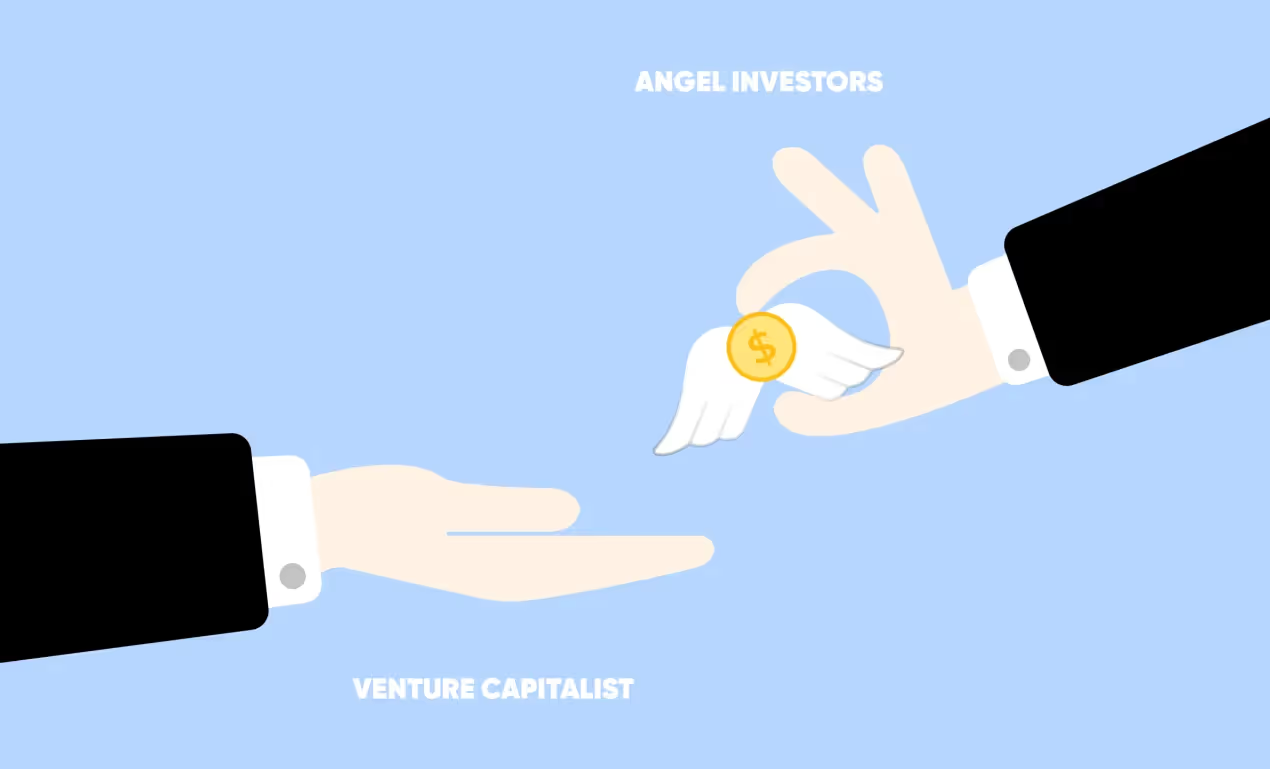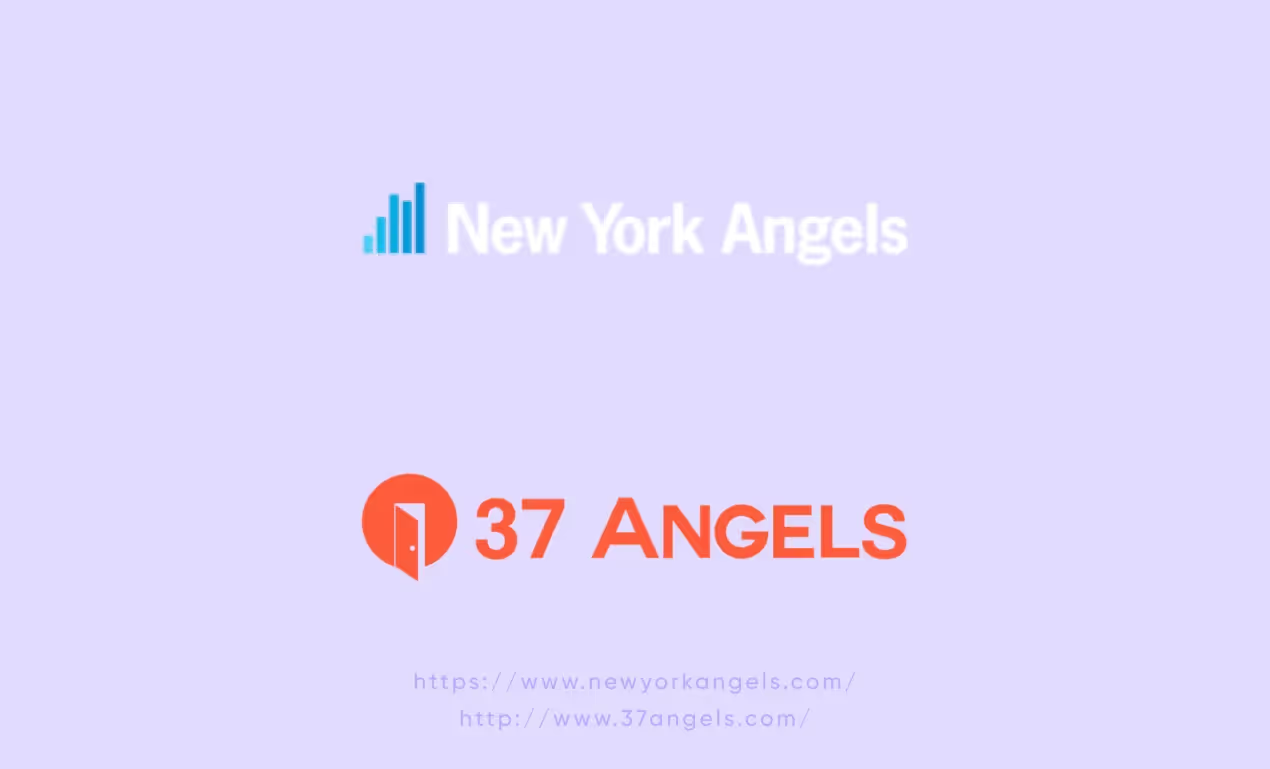


"God save the angels" — say startuppers who want angel investors to choose their projects to invest in. It is not so easy to succeed without funds, making investors real angels. But it is not so easy to find a good angel, especially in a particular city — for example, New York. On the other hand, the Big Apple is one of the most popular places in the world where angel investors exist.

If you are in search of an MVP development agency and investors who will give you the funds, this article is for you. We gathered some tips on getting investments and found seven great NYC angel investors who can help your startup get off the ground.
If you needed to name an individual startup investor, what would you call them? Saviors? Helpers? Holy men? We can imagine various names for those who help startups, but at the beginning of the previous century, it was done for us.
It happened in the 1920s, and, lo and behold, in New York City. Despite the poor theatrical community, the passionate members kept playing. On a good day for actors, the wealthy visited Broadway theater and — if they liked a performance — provided money for it. Playgoers called such individuals ‘angels’ because Broadway shows might have died unless they hadn’t supported them.

In 1978, the Center for Venture Research completed a study about USA businessmen raising seed capital. They began using the term ‘angel’ when referring to investors. From this time, an individual who provides capital for a business startup turned into an angel investor.
Nowadays, angel investors are high-net-worth people who give financial backing to small startups, typically in exchange for owning equity in the company. Angel investors are often startup owner’s relatives or friends. The funds that angel investors provide may be a one-time investment to help the business get off the ground or an ongoing injection to support and carry the company through its difficult early stages.
And a startup needs funds. Let’s discover what advantages you gain when an angel investor comes to your project and why it’s better than other investment ways.
Unlike traditional investors, angel investors aren’t beholden to banks or other institutions. This allows them to invest their money much more freely, and as such, angel investors may be more likely to take investment risks.
Most NYC angel investors didn’t just magically gain their money — they had to learn a ton while growing their wealth. When an angel investor comes to your company, you get access to all the knowledge your investor has. Surely, you can use it to develop the startup. Although 9 in 10 startups fail, an angel investor’s experience can make your company the one success story.
As you take out your small business loan, your bank will expect you to repay it, irrespective of whether the venture actually succeeds. An angel investor operates according to a different framework. They’ll offer you the capital needed to get the ball rolling and receive an ownership stake in your company in exchange. If the startup takes off, you’ll both reap the financial rewards. If your company falls flat, an angel investor won’t expect you to pay the offered funds back.

It is not enough to find a NYC angel investor. To get investment and start the project, you must present your idea and prove its efficiency. There are various approaches to completing this task, but the best one is building an MVP app. Minimum Viable Product is a version of your app that includes only core features. If investors like your MVP, they will probably want to give you the funds.
We’ve collected 3 tips to use on the MVP presentation. It helps you get ready for the pitch.
One hundred fifty boring sheets of paper or just an email containing your plans is the worst thing you can send to investors. It doesn’t matter how interesting and useful your app is — without a good presentation, you won’t succeed. Make a summary of the business plan with bullets, lists, and pictures. Ten to fifteen good-structured slides are enough to convey the idea of your MVP. To make the long story short, don’t bore the angel.
There is safety in numbers. Investors really appreciate teamwork — show them that you have gathered professionals who are enthusiastic about the project. It’s really good to present them as professionals and great team workers, so don’t forget to highlight your teammates’ skills, experiences, motivations, and involvement in the business. Also, during a face-to-face pitch, investors prefer to speak with the whole team rather than just a CEO.
An efficient pitch should be personalized. Consider the information you gained during investor research when writing your pitch deck. Address investors by their names, and include a small note that explains why you’re writing to them and gives a short story about your startup.
Angel investors don’t grow on the trees. Wanna find them? You need a map! Lucky you are — we’ve got one. As we are talking about the US and especially New York City angel investors, let us present angel investors on the US map.

The New York Angels are among the top 10 of most active angel groups. They are a member-led organization committed to finding, funding, and mentoring great young companies from pitches through successful results. The New York Angels consist of over 130 active members with extensive experience across industry sectors. They generally invest between $100,000 and $1 million, and their portfolio includes a pretty diverse array of tech companies. They meet monthly to discuss new investment opportunities.
The 37 Angels is a community of more than 90 female investors focusing on early-stage investment education. These NYC angel investors generally invest between $50,000 and $150,000 in 10 to 12 startups per year. They meet every two months for a pitch forum, where eight companies are invited to pitch. The main feature of 37 Angels is that they invest in female startups. Their goal is to help women around the world start their own businesses.

HBS Alumni Angels of Greater New York is the largest angel-investing NYC group with 350+ angel investors. Their members have invested $15 million across 100 exciting early-stage companies. They meet monthly to hear pitches in person from the best entrepreneurs. On average, they invest in 1-2 companies per month, a few weeks after they pitch. The angel investor members are Harvard Business School and other Harvard University alumni who invest individually.
This group of over 300 angels invests in women-led businesses. They tend to look for companies valued at about $5 million and seek the first round of funding between $250,000 and $2 million. In addition to its angel group, Golden Seeds also runs several venture capital funds. Headquartered in New York City, Golden Seeds has chapters in Arizona, Atlanta, Boston, Dallas, Houston, New Jersey, New York, and Silicon Valley — and active members throughout the country.

This NYC angel investors network is set up to encourage seed and early-stage companies to set up shops on Long Island. It should be noted that if they fund your company, they’ll expect you to have a mission-critical portion of your business located on Long Island. Investments tend to be between $100,000 and $750,000. LIAN is a New York not-for-profit corporation with individual angel investors interested in financing privately held companies or ventures.

BoxGroup prefers ‘early means’ rather than traction and raw products. They are one of those investors who appreciate teamwork in the team. They believe in ‘founder-market fit’ — the concept that certain teams can unlock specific markets. This is the first step to get to ‘product-market fit.’ BoxGroup was among the top three most active United States-based micro venture capital firms in 2014. The company was listed in Poet & Quants ‘Top 20 Investors Behind MBA Startups’ and has over 230 investments in startup companies including Vine, Groupme, Warby Parker, and Behance.
Founder Collective is a partner from the idea to IPO. The partners at Founder Collective have all built and sold technology companies. Our goal is to make Founder Collective the firm we wish had existed when we were starting out. Venture capital is a dangerous commodity — they provide an instruction manual.
